A Year That Upended Our Thinking: IGCC Experts Look Back at 2023
The past year saw a convergence of escalating crises: Year two of Russia’s war in Ukraine. The fallout for the poorest countries in higher food and energy prices. Climate catastrophes. Israel and Hamas at war. A new nadir in U.S.-China relations. Trade wars. Inflation. Rising populism, polarization, and democratic backsliding.
Moments of deep crisis offer a chance to reexamine old assumptions, and open space for new approaches and possibilities. Here, IGCC experts from across the University of California reflect on assumptions they are rethinking in light of a turbulent and changing world.
Jump to a specific topic:
- Richard Matthew: Climate Change Is Cause for Alarm—Not Surrender
- Georgia Kernell: Rethinking Misinformation—It’s Not Just Social Media’s Fault
- Pamela Ban and Kevin Esterling: Far-Right Politics and Upended Assumptions about Congressional Parties—and Democratic Governance
- Robert Thomas: A Year of Getting it Wrong
- Ajay Shenoy: Is Democracy Gaining Ground Anywhere?
- Jeannette Money: The Liberal International Order Needs Reexamination
- Eric Min: The Year Interstate War Went from Historic Abstraction to Painful Reality
- Paul Almeida: Why We Need to Rethink Climate Civic Engagement
- Lauren Young: Who Will Stand Up for Democracy?
- Cecilia Farfán Méndez: Rethinking Evidence-Informed Policymaking in Light of the Failed War on Drugs
- Heather Stoll: Engaging with Democracy’s Decline as a Scholar and Teacher
- Scott Tait: An Unexpected Case for Optimism
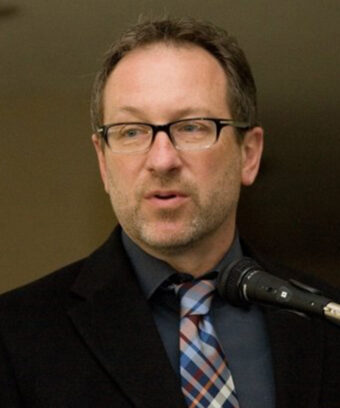
Richard Matthew: Climate Change Is Cause for Alarm—Not Surrender
In the early 1990s, the idea that the world could collaborate to address the shared challenge of climate change did not seem farfetched. The first Intergovernmental Panel on Climate Change Assessment Report (1990) synthesized research from across the planet into a compelling narrative and call to action. The United Nations Framework on Climate Change(1992) brought North and South together through the principle of “Common but Differentiated Responsibilities.” The end of the Cold War opened the door to new forms of cooperation and the Clinton-Gore White House put climate change at the top of its agenda. But over the past 30 years, goals that once seemed practical now seem wishful, and widespread optimism has given way to deeply entrenched pessimism fueled by decades of disagreement and inaction.
Can today’s climate fatalism—the assumption that this century will be defined by climate catastrophe—be challenged and even reversed?
2023 was the hottest year ever recorded. It was also the year in which some daily measures of global warming exceeded 2 degrees Centigrade, a critical threshold beyond which we can expect a cascade of devastating heat waves, droughts, floods, and wildfires that will quickly affect tens, perhaps hundreds, of millions of people. Fears first expressed at Stockholm in 1972, have become today’s headlines. Climate change is triggering or amplifying the displacement of humans and most other species; causing steep declines in public health and labor productivity; generating an explosion of humanitarian crises; deepening poverty and inequality; and contributing to a rise in violent conflict. Adaptation to its many impacts has been erratic and uncoordinated; mitigation of greenhouse gas emissions has blunted but not reversed their growth.
Climate anxiety and pessimism are widespread and have become embroiled with a host of other concerns ranging from unprecedented disillusion in democracy, to fears that the United States and many other countries may be veering towards authoritarian forms of government. Further complicating prospects for collaboration and optimism at home and abroad, we are being overwhelmed by floods of misinformation and disinformation, which, in a just a few years, have become rampant in mainstream and social media, political discourse, and the corporate sector. Throw in lingering anger about the huge and unfair costs of the 2007-08 Great Recession and the enormous and unequal impacts of the pandemic, and it is hard to envision 2024 as a year of civility, progress, hope—or real climate action.
And yet the repertoire of human ingenuity is infinite and universal; the science of climate change is rigorous and increasingly inclusive; youth around the world have a sense of shared purpose and unique technologies for sharing information and mobilizing; and a vast array of promising solutions are accessible and viable at every scale and in almost every cultural and economic context. Science underscores just how much we can do, but we still need many more people to believe that what they can do matters. Two degrees of warming since the 19th century is a cause for alarm—but not surrender.
Richard Matthew is IGCC research director for climate change and security and a professor of urban planning and public policy at UC Irvine.
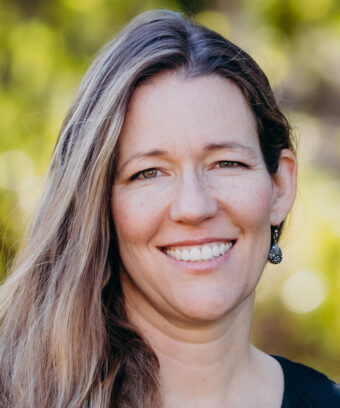
Georgia Kernell: Rethinking Misinformation—It's Not just Social Media’s Fault
Public and scholarly thinking on the proliferation and impact of misinformation has largely focused on the role of social media. Numerous actors, including armies of Internet trolls and state-sponsored bots, have weaponized these platforms to warp the conversation on a wide range of issues, eroding public trust in government and democracy in the process. This past year was no exception; misinformation continues to skyrocket both on and offline. The United States is facing a misinformation crisis.
Efforts to combat the spread of false information have largely focused on regulating digital platforms. Yet, politicians are unable to change many aspects of the media—for good reason. Digital literacy education and fact checking appear to work under some conditions, but people who engage in either are a small, unrepresentative minority of consumers. Those who need fact checking the most are often the least likely to use it.
While there has been much handwringing over the impact of misinformation on our political institutions, those institutions are less often cited as a possible cause of—and solution to—the problem. But they play a much larger role than is generally assumed. American electoral institutions structure the choices available to voters and consequently have the power to limit or amplify political polarization and the power of misinformation. In March of 2015, 75 percent of Republicans said they could never see themselves voting for Trump. But primary election rules allowed a small minority of voters to select Trump anyway, leaving conservative voters with little to no choice in the general election.
As I continue to study political parties in countries throughout the democratic world, I’m struck by the weakness of U.S. party elites in recruiting candidates and structuring the vote. In most countries, party leaders play an official role in candidate nominations by either selecting approved lists of candidates for members to choose from or holding veto power to intervene when activists select candidates the leaders find objectionable. In the United States, I wonder if weak party control over primary elections allows not only for the proliferation of polarized candidates but also for polarized—and misinformed—beliefs. As a result, I’m working to integrate the fields of political communication and comparative electoral systems, both in my research and teaching.
Georgia Kernell is an assistant professor in the Departments of Communication and Political Science at UC Los Angeles.
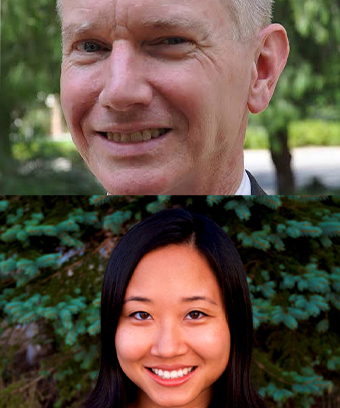
Pamela Ban and Kevin Esterling: Far-Right Politics and Upended Assumptions about Congressional Parties—and Democratic Governance
While 2023 was an eventful year in many ways for American politics, to us, as scholars of the U.S. Congress, the event that most reoriented our assumptions was the October 3, 2023, vote to remove GOP representative Kevin McCarthy as Speaker of the House. The GOP had only a four-vote margin for a majority in the chamber, and eight members of the conservative House Freedom Caucus joined Democrats in favor of vacating the speakership.
The leadership crisis in the House GOP has undermined two core assumptions we hold about congressional politics—assumptions that are held by virtually all scholars in our discipline. First, for the past century and a half, we have assumed that the majority party in Congress can act as a “cartel” that oversees and conducts the business of the chamber. Until recently, the influence of extremist factions on legislative processes had been contained by party leadership, which controlled access to important resources such as committee assignments and reelection support. But members of the Freedom Caucus have no need for party-controlled resources and instead have found independent power in the right-wing media ecosystem of cable news networks and social media platforms.
Second, our discipline has long assumed that conflicts within the legislature are driven largely by policy differences, which can be characterized by members’ left-right, or liberal-conservative, ideology. But by the standard measures we use in political science to determine ideology, such as roll-call votes, the members of the Freedom Caucus who voted to vacate have ideology scores that span the full distribution of scores among Republican House members. In other words, they didn’t vote against McCarthy’s speakership because of any policy disagreement with the party leadership. Their votes to vacate were simply meant to signal their disapproval of how McCarthy operated by throwing a wrench into the normal functioning of democratic self-governance.
American legislative dysfunction has laid bare, not only the deepening conflict within the Republican Party over the fundamental idea of governance, but also the potential for a powerful democracy to be hamstrung in responding to domestic and international issues promptly and effectively. Republicans required three weeks, for example, to install a new Speaker, and the impasse happened concurrently with Hamas’ invasion of Israel and the ensuing war. This stymied the House from passing emergency aid during some of the most intense early days of the conflict.
In 2023, the world saw the lengths to which a newly empowered hardliner faction could go to shut down and paralyze government. Even a powerful democracy can be rendered unable to perform the basic function of governance. Of course, what the Freedom Caucus is doing is inextricably linked to the rise of populism around the globe, from Italy to Argentina, and it reveals the urgency with which we as engaged scholars must correctly diagnose the underlying causes of legislative disorder. The American public need to understand exactly what is happening—and what could happen in democratic legislatures beyond the United States.
Pamela Ban is an assistant professor in the Department of Political Science at UC San Diego. Kevin Esterling is a professor of public policy and political science and the director of the Laboratory for Technology, Communication and Democracy (TeCD-Lab) at UC Riverside. Both Ban and Esterling are affiliates with IGCC’s Future of Democracy initiative.
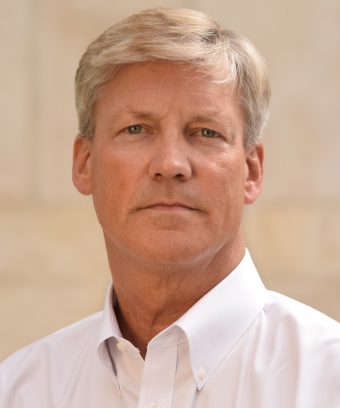
Robert Thomas: A Year of Getting it Wrong
Like many of my colleagues and friends, when I look back on 2023, I find myself discouraged. Perhaps it is that I am not seeing significant progress toward cooperation, just more conflict, to put it in IGCC terms. My assumptions about conflict resolution have been absolutely incorrect over the past 12 months.
By now, I had the Russo-Ukraine war completed with a reasonable outcome for the team in Kyiv. I was also convinced that the United States, Europe, and the African Union would go “all in” on finding a way to help stop the cycle of brutal violence in war-torn Sudan.
Despite the events of October 7, China-U.S. competition continues to take most of the oxygen out of the room here on campus. The 2020s will compete with the 1990s as one of the bloodiest decades in history, and the two major global competitors will not have fired a shot at each other. I will probably be wrong about this too.
All of this, discouraging though it is, underlines the importance of the policy-engaged community of researchers and practitioners that make up IGCC. This might sound trite, but it isn’t. In fact, another surprising thing about 2023 was that, amidst the recital of bad news, a candid and constructive conversation was had among a group for which cooperation might seem a distant hope. At IGCC’s Northeast Asia Cooperation Dialogue this past summer, scholars, policymakers, and the defense communities from five countries converged in La Jolla. Americans, Russians, Chinese, South Koreans, Japanese—we found points of commonality and possibility, despite everything.
Optimism is the watch word for 2024 and that optimism will be fueled by the continued, persistent engagement of my colleagues and our students. We can’t give up on a better world.
Robert L. Thomas is a retired Vice Admiral in the U.S. Navy, an affiliate at IGCC, and a professor of practice at UC San Diego’s School of Global Policy and Strategy.
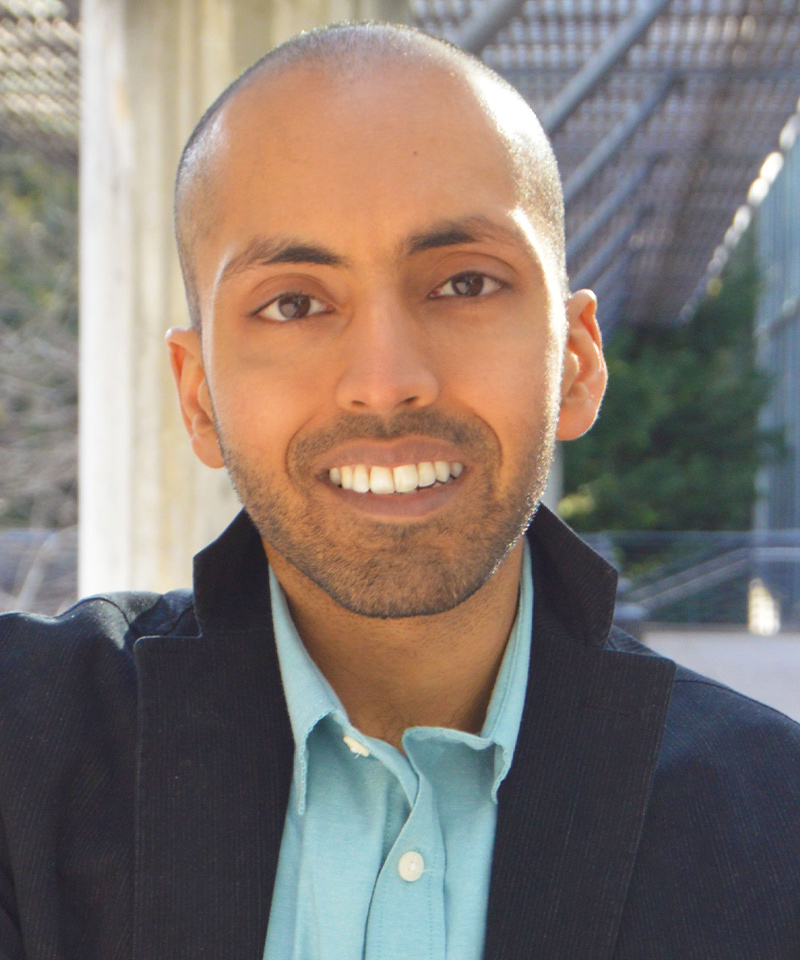
Ajay Shenoy: Is Democracy Gaining Ground Anywhere?
While Western media has largely focused on the wars in Ukraine and the Middle East, the spate of coups and civil wars in Africa are what have most shaken my assumptions. Democratic norms have eroded over the past decade in South Asia, Europe, and even the United States. Africa seemed to be the only counter-narrative. But the coup in Niger, coming on the heels of similar coups in Mali and Burkina Faso, and the “self-coup” in Tunisia, have made me question whether democracy is gaining ground anywhere.
There is an established theory in development economics that a lasting democratic transition fosters economic growth. But whether democracy lasts may be the most important question of all. I have come to question at what point it is safe to assume that a country has transitioned to democracy. Any dataset is a snapshot, and countries coded as democracies today could be autocracies tomorrow. Many of the most prominent studies of the impact of democratization (e.g., Acemoglu et al., 2019) were based on data that did not include the past decade. Would they find similar results using a fully current source of data?
More generally, I question whether we should define the economic success of a democratic transition as the all-else-equal impact on GDP for however long democracy lasts. Should our measures account for the country’s full trajectory, including subsequent transitions away from democracy? If the typical transition to democracy creates a few years of economic growth, but also plants the seeds of a violent authoritarian reversal, should we focus solely on the growth that arose during the brief period of democracy? That metric seems hard to justify if the collapse of democracy ultimately leaves the country worse off than it would have been had it never democratized.
Devising a better metric and applying it in a way that distinguishes correlation from causation will be an extraordinary challenge. But the need for such an approach has been made tragically clear in 2023.
Ajay Shenoy is an associate professor of economics at UC Santa Cruz and a member of IGCC’s Steering Committee.

Jeannette Money: The Liberal International Order Needs Reexamination
The events of 2023 have revealed the extent to which the assumptions underpinning the “liberal international order (LIO)” have proved unfounded. The LIO has been defined as an “open and rule-based international order,” promoting economic openness, democratic governance, and international cooperation. The inability of international trade and capital flows to promote development in poor countries and reduce global inequality; the renewal of great power politics and the role of violence in advancing state interests; the environmental challenges confronting both wealthy and poor countries; the rise of authoritarian governance: all this suggests that the international order constructed after World War II has not delivered on the promise of peace and prosperity for all.
In the arena of international migration, which is a topic I have studied for more than 20 years, the underlying assumption of the LIO is that states not only have the sovereign right to govern entry but also the ability to do so. This assumption—especially the latter—should be reexamined. Take, for example, the United States’ southern border with Mexico. In line with the Global Compact on Safe, Orderly and Regular Migration, President Biden opened new legal pathways to entry, in the hopes of reducing undocumented border crossings and the dangers to human security associated with journeys where legal entry is unavailable. Although initially border traffic died down, it has grown again to levels not seen for decades. The dangers for migrants also continue. Lives lost in the Mediterranean also show that opening wider legal pathways to entry has not met the demand for international mobility and, therefore, has not diminished irregular movement across international borders. The international legal framework developed to handle forced migration has been unable to cope.
This inability to reduce flows is challenging the communities who receive them. Since the spring of 2022, New York City has received more than 130,000 migrants, overwhelming existing public resources and requiring the City to transfer funds already allocated to other City services. This crowding of public services provides a trigger for an anti-immigrant backlash fueled by populist politicians, which could lead to democratic backsliding. Though immigrants are merely seeking a safe haven in which they and their families can flourish—and may contribute to the expansion of resources over time—receiving cities also feel an impact in the absence of a comparable increase in infrastructure and resources.
Globalization promoted by the LIO contributes to the stresses challenging states and populations today, economically, environmentally, and politically. Perhaps a rethinking of the LIO is in order with the goal of reducing the stresses that contribute to the increasing movement of populations across international borders.
Jeannette Money is a political scientist at UC Davis and a member of IGCC’s Steering Committee.

Eric Min: The Year Interstate War Went from Historic Abstraction to Painful Reality
Before 2022, I’d spend the last five minutes of my lectures on interstate war—a core component of my research—making the case for why we should still care about the phenomenon even though it appeared to be on the decline. My references to the 2003 invasion of Iraq (the last major interstate war before 2022 according to the Correlates of War Project) were distant history for students who were born mere years before or even after the conflict began. I would tell the class that several hot spots around the world could eventually boil over into armed hostilities, and I would sometimes feel frustrated that my sincere warning appeared to be dismissed by students who found it too abstract.
Since the Russian invasion of Ukraine in 2022, and even more so with the conflicts between Israel and Palestine as well as Armenia and Azerbaijan in 2023, this five-minute speech has been unnecessary. If anything, students now come to class with an intense and reactive desire to identify why these specific wars are happening and what hope exists to resolve them. War is now a vivid reality that begs for an explanation.
Teaching concepts about war in this urgent environment has underscored the importance of relying on objective facts and principled theories to comprehend seemingly irrational events. This has always been a strength of the discipline, and students are clearly looking for order in the midst of chaos. Teaching about war while wars unfold all around us has also shown the need to have humility and empathy. As an example, when we discuss conflict resolution, I often mention my research showing that wartime negotiations borne of external pressure tend to be unsuccessful at restoring peace. Pushing belligerents to talk may not push them to settle. This is not merely a historical fact. It means that third parties, including the United States, may have much less power right now to use diplomatic pressure to stem violence than we might expect or hope. And recent violence is not simply tragic in the abstract. For many students, it is the bloodshed of their friends and families. War is not only more vivid; it has been humanized. For this reason, I feel much greater weight to any claims I make about today’s conflicts than I do when talking about hostilities from decades or centuries ago.
The year 2023 has made me realize how much I miss giving my five-minute speech. But it has also reminded me of the immense depth of another seemingly obvious point I still and will always make at the start of those same lectures: war is costly.
Eric Min is an assistant professor of political science at UC Los Angeles.
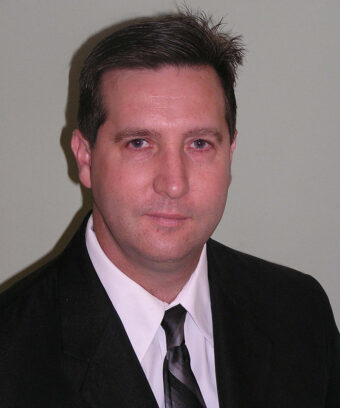
Paul Almeida: Why We Need to Rethink Climate Civic Engagement
More daunting news on the climate front marked this past year. We learned that 2023 was the hottest year in the historical record. Major nations came up short in meeting their commitments for carbon emissions reduction and climate financing. Despite years of dialogue and government pledges, the crisis is getting worse.
Because of the existential nature of the threat of planetary warming, there is an urgent need to involve more of the public to participate in climate action initiatives. Both the British Academy and the National Academies of Sciences, Engineering, and Medicine have called for more civic engagement in climate action in recent months.
But the conventional thinking on civic engagement needs to be reexamined. For too long, the climate science community has assumed that if they provide scientific evidence of human-induced climate change, civic action will naturally follow. But this hasn’t been the case. Though there are many great examples of climate protest and action—think Greta Thunberg and pontoons accosting oil tankers—deep and widespread civic engagement has yet to materialize.
Sociologists who study social mobilization have the tools to offer practical lessons for how to get publics engaged in climate action—and we can and should do more to help shape civic action in our communities.
The sociology of civic engagement offers suggestions for how to increase popular participation in climate action. It begins with raising public awareness about the severity of the climate crisis. The larger the pool of civic concern, the greater the potential to convert concern into participation in climate assemblies and climate action planning. The civic engagement literature also shows that past civic involvement can lead to participation in the present, and investing in organizations and groups that train people in how to meet with elected officials, organize neighborhood meetings, and communicate effectively can increase public participation in climate action across neighborhoods, cities, and nations. Climate action isn’t reserved only for traditional environmental advocates—community-based organizations, labor unions, environmental justice organizations, and other associations and collectives representing vulnerable and excluded groups have indispensable roles to play.
Widespread organizing around climate action by trusted and representative community messengers is going to be essential if we’re going to change the trajectory of this crisis—many more ordinary people are going to need to get involved.
Paul Almeida is a professor of sociology at UC Merced and a member of IGCC’s Steering Committee and working group on climate change and security.
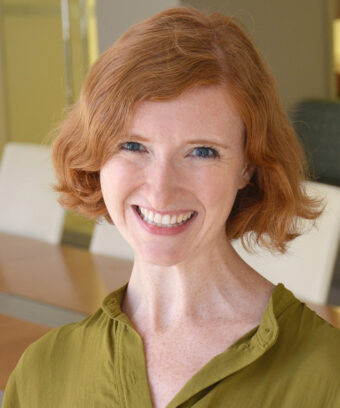
Lauren Young: Who Will Stand Up For Democracy?
The increase in 2023 in violent conflict and regression to autocracy—at a scale the world has not seen since the 1980s–has me questioning the assumption that Western states and institutions generally promote democracy and fight repression, and that they will continue to do so for the indefinite future.
In some ways this is a controversial “conventional wisdom,” since there are many examples of blatant abuses of power and subversions of democracy by rich Western states in the pursuit of fighting terrorism, fighting communism, or promoting their own economic growth. Nonetheless, since the end of the Cold War, promoting democracy and human rights has been an important tenet of U.S. and European foreign policy. And lots of research shows that international institutions, aid organizations, global election monitoring, and naming and shaming have incentivized higher quality elections and increased the costs of repression.
Today though many governments are falling back on repressive styles of governance that I thought were outdated. The prevailing wisdom says that repression is costly and dangerous for autocrats, and so modern autocrats prefer to rule by “velvet fist”—maintaining enough popularity to win elections through propaganda and economic growth, instead of by the gun. But today many governments are engaging in outright coercion and violence. In some of the countries that I follow closely, like Côte d’Ivoire and Zimbabwe, this has meant increased political persecutions and mass repression of protesters. In Haiti it has meant a de facto self-coup as the legislature, judiciary, and bureaucracy have decayed or expired after the assassination of the president in 2021. And in seven countries in Africa since 2020, it has meant a return to military rule after coups.
There are few signs that Western governments can counter autocratization in the Global South—and indeed, isolationist and in some cases blatantly anti-democratic parties and candidates are gaining ground across Europe and in the United States.
If there is one bright spot, it is that some young democracies and regional bodies that represent them are starting to fill the void left by the West in recent years. The Southern African Development Community wrote—for the first time in Zimbabwe’s history—an election observation report that clearly condemned the quality of the 2023 election. The Economic Community of West African States has also taken an unusually strong stance against the recent coups, especially in Niger. These points of resistance are being bolstered by a new crop of political leaders like Hichilema in Zambia and Tinubu in Nigeria and reflect the continued institutionalization of democracy in countries like Ghana and Malawi. It is also worth noting that the EU has mostly held firm in its condemnation of democratic backsliding in Poland and Hungary, despite the pivotal role of these countries in the Russia-Ukraine war. All of this may suggest that if the United States continues to withdraw from the global stage and Europe focuses on its borders, regional powers may continue to play an increasingly important role in calling out repression and democratic abuses.
Lauren Young is an associate professor of political science at UC Davis and a member of IGCC’s Future of Democracy executive committee.

Cecilia Farfán Méndez: Rethinking Evidence-Informed Policymaking in Light of the Failed War on Drugs
This past year saw the return of punitive—and failed—approaches to drug policy, catalyzed by fentanyl-related overdose deaths. Some U.S. officials are calling for Mexican criminal groups to be designated as Foreign Terrorist Organizations. Others have even suggested that the United States send troops to Mexico and bomb cartels.
These throwbacks to the “war on drugs” are challenging my assumptions about the degree to which evidence has influenced policy. The last fifty years have showed us that public health approaches to drug policy, rather than criminalization, are the most effective path forward. However, the urgency to save lives otherwise lost to preventable overdoses, seems to be throwing evidence out the window. Even the idea that transnational problems require transnational solutions is being challenged. The proposed NARCOS Act not only misses the point on how drug markets operate (hint: it is not three rugged men with eccentric clothing hidden in the hills of Sinaloa that can be bombed at will), it also overlooks the preference for fentanyl some substance users have. This is to say, drug users are not deliberately murdered by criminal organizations, since it is bad business for your drug dealer to kill you, but fentanyl users specifically seek out this substance.
As a social scientist, I believe evidence can and should improve policy. With elections coming up in Mexico and the United States, my assumptions on evidence and policy will be further tested but as a “glass half full” researcher, I think scholars of drug markets like myself face a two-pronged challenge: 1) we need to produce evidence that is useful for addressing the security and public health challenges in both countries and 2) we need to quickly and significantly improve the ways in which we communicate our findings to policymakers and the general public. Policy often dislikes complexity, but when it comes to fentanyl we need to find a way to introduce nuance into the public conversation. Doing so is a matter of life and death for those dying of preventable overdoses as well as those murdered in drug market disputes.
Cecilia Farfán Méndez is an affiliate at IGCC and head of research at the Center for U.S.-Mexican Studies at UC San Diego’s School of Global Policy and Strategy.
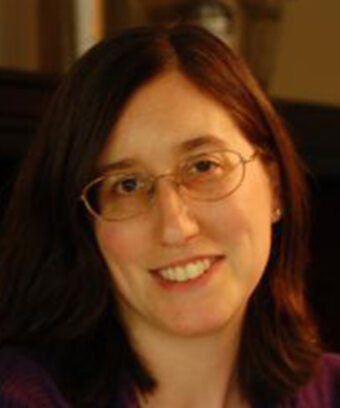
Heather Stoll: Engaging with Democracy’s Decline as a Scholar and Teacher
The events of 2023 have caused me to feel greater pessimism about democracy. Francis Fukuyama’s influential argument from the 1990s about the triumph of liberal democracy had a ring of truth to me for many years. Despite recognizing the many valid criticisms of the argument, I bought into the optimism that, hiccups aside, democracy was secure both in the United States and in the global arc of world history. I no longer feel that sense of security.
My fears for the future of liberal democracy have many roots. On the international stage, the continued rise of Russia and China and their deepening autocracy are obvious threats. But the most serious threats are at home. The resurgence of Donald Trump as the likely 2024 Republican presidential candidate in the United States, the success of populist and far-right parties in elections around the globe, the loss of trust in democracy and deepening polarization among democratic publics, and the seeming inability of democracies to confront challenges ranging from inequality to wars abroad are all symptoms of democracy’s ills.
In my research and teaching over the last few years, I have asked, with greater urgency: how can we make democracy work? There are a whole range of political institutions—electoral systems, regime type, and vertical relations between different levels of government—that shape democratic governance, and hence the health of a country’s democracy. Too many scholars, myself included, have looked for too long at these institutions in the abstract. We haven’t paid sufficient attention to the details of institutional design, or to how the institutions interact with each other and with broader context, such as the media landscape and economic situation. For example, I no longer think that the United States’ relatively unique national-level political institutions (a complex blend of majoritarian and consensual elements) are serving it well, especially given the rise of social media and changes in the socio-economic landscape. The difficulty that confronts scholars of democracy is how to proceed empirically to identify the effect of political institutions and other factors on the health of democracy, given the issues just raised: doing so is not an easy task. But only by doing so will we be able to advise the public about the best ways to strengthen democracy.
In my teaching, I especially want my students to appreciate the acute internal threats we face, in addition to the arguably more obvious external ones. They are as shocked as I first was by the quantitative and qualitative evidence of democratic backsliding in the United States and other consolidated Western democracies. That sense of shock is needed to help us find a way forward, back onto Fukuyama’s positive trajectory.
Heather Stoll is an associate professor in political science at UC Santa Barbara and an affiliate with IGCC’s Future of Democracy initiative.
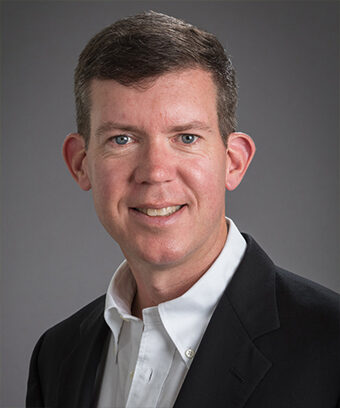
Scott Tait: An Unexpected Case for Optimism
As 2023 comes to a close, many of my assumptions of the past few years were found wanting. I had begun to doubt whether the United States and the world we helped create was really able to effectively deal with the monumental challenges we face today.
Now, I find myself in a distinct minority that is cautiously optimistic about the future, particularly for the United States. Our systems of government and business often appear chaotic and ugly, since we make all our mistakes in public and have institutions founded on the invitation to struggle. Solutions—particularly to large or uncertain challenges—are often slow to come. But when they do come, they are generally well-tested and we are able to scale them unlike any other country. In the worst case, when our solutions fail, we are encouraged to admit that failure and change course peacefully through our election cycle—unlike the fast-moving autocracies that are politically bound to the course they choose, no matter how obvious the failure might become. The U.S.-led international system now appears ready to effectively engage the most pressing problems of our era: climate change, sustainable economics, and the threats to human freedom posed by militant autocracies, although it will no doubt do so more slowly and indirectly than we might wish.
Climate change and the need to create an economic system that is environmentally sustainable are, arguably, the most pressing threats humanity has had to confront. It is unlikely that solutions which require broad cooperation and economic sacrifice across international borders will succeed in dealing with either problem. But the magnitude of these problems is now broadly accepted in the West with political and social pressure growing to address them. Consequently, both private and public resources are flowing into potential solutions that will compete based on technological efficacy and economic viability. I’m skeptical that we will be able to reverse climate change, but optimistic that we will engineer a favorable future for humanity despite a less benevolent environment. Likewise on the need for creating a more sustainable economy, we have done big things in the past and can do them now. In the 1960s and 1970s we confronted what seemed like impossible challenges in water and air pollution. The combined impact of research-based regulatory policy, technological innovation, and economic incentives resulted in significant and rapid change, producing solutions that were exportable to other parts of the world.
My optimism is not meant to diminish the urgency or necessity of action, or to downplay the fact that we are likely moving into a difficult and dangerous transition period. But no system in the history of humanity has proven as agile or resilient in the face of great challenges as capitalist democracies, and the United States is by far the best bet to help lead humanity into this new era of our shared experience.
Scott Tait is an affiliate with IGCC and executive director of the National Security Innovation Catalyst, an IGCC-incubated initiative to strengthen ties between researchers, innovators, and the U.S. government to advance national and global security.

Global Policy At A Glance
Global Policy At A Glance is IGCC’s blog, which brings research from our network of scholars to engaged audiences outside of academia.
Read More